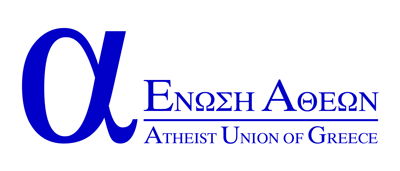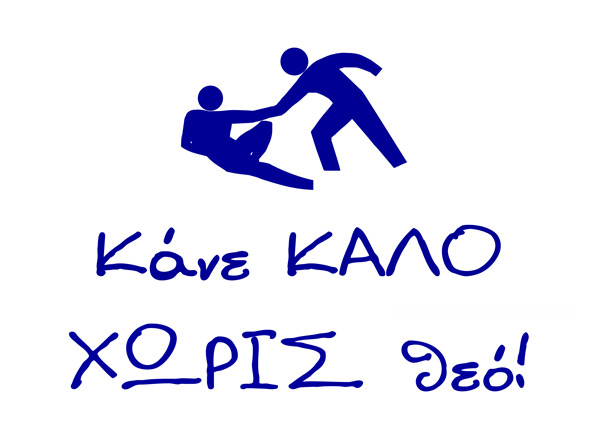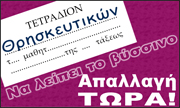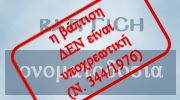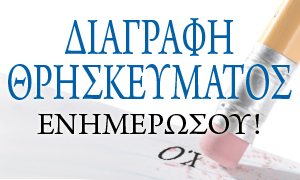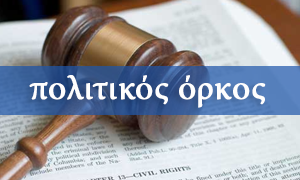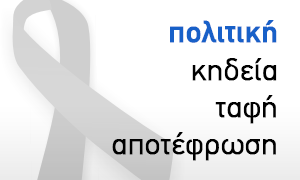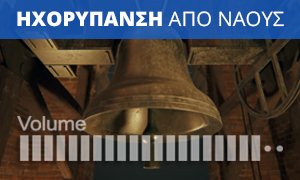Media coverage of the Atheist Union’s actions and important events around atheism can be found below.
For Greek media coverage, click here.
26/9/2023 Religion News Service
ISTANBUL (RNS) — In an ongoing struggle between the Atheist Union of Greece and Greece’s Ministry of Education, Greece’s Council of State ruled this month that Greek Orthodox students cannot be excused from required religious education classes and said exemptions for non-Orthodox do not violate human rights or European Union privacy laws.
In Greece, public education and religious education are intimately entwined — so much so that the Ministry of Education’s full name is the Ministry of Education, Religious Affairs and Sports. Article 16 of the Greek Constitution declares that “Education constitutes a basic mission for the State” and tasks educators with ”the development of national and religious consciousness.”
All students in Greek public schools who belong to the country’s Orthodox Christian majority are therefore required to attend religion classes from grade three through high school.
But Greece has long allowed exemptions for Jews, Muslims and non-Orthodox Christian groups, along with atheists and agnostics. According to the Greek newspaper eKathemerini, in recent years about 10,500 exemptions have been granted annually.
RELATED: Riding a wave of converts, one group aims to fuse Orthodoxy with Southern values
The Atheist Union of Greece initially took the matter to court in 2015, arguing that the request for an exemption itself constituted a violation of privacy under the European Union’s General Data Protection Regulation, as it created a record of each student’s religion, or lack of one. The process also allowed school administrators to coerce students into the classes or retaliate against those who request exemptions, the suit argued.
“The ministry was trying as hard as they could so that few students would get exempted and to discourage students to seek exemptions by using a variety of tricks and ministerial decisions,” Napoleon Papistas, the secretary of the Atheist Union of Greece, told Religion News Service.
Overview of Athens, Greece. Photo by Rafael Hoyos Weht/Unsplash/Creative Commons
Overview of Athens, Greece. Photo by Rafael Hoyos Weht/Unsplash/Creative Commons
The wording of the exemption request required students, with the approval of their parents, to declare themselves “not of the Orthodox Christian religion,” Papistas explained. Overly eager school officials, he said, would often search for students’ baptism records and use their baptismal certificates as grounds to reject their claims.
“We have had many parents and students contact us because they encountered some problems, in the process of applying for the exemption,” Papistas said. “There are still some school principals who feel it is their right to defend Christianity and Orthodoxy.”
Some 90% of Greece’s population identifies as Orthodox Christian, according to a 2017 Pew study of religion in Eastern Europe, though only 17% attend church weekly. The Greek Constitution states that Orthodox Christianity is the “prevailing religion” of Greece.
Since the case was filed, the ministry changed the language for requesting the exemption to what officials considered more neutral language: “Reasons of religious conscience do not allow the participation (of me or my child) in the Religious Studies course,” it now states.
The Atheist Union and other human rights groups in Greece felt this was not enough, as it still put school administrators in a position to evaluate a student on the basis of religious beliefs.
According to the Hellenic League of Human Rights, their objection was backed by the European Court of Human Rights, which in a 2018 case found that “state authorities do not have the right to intervene in the sphere of individual conscience and ascertain the religious beliefs of the individual or compel him to reveal his beliefs regarding spiritual matters.”
In the same case, the National Secular Society argued that the new language also discriminated against Orthodox students by not giving them the option to seek an exemption.
At that point, Orthodox Church authorities intervened in the original 2015 case to prohibit opening up exemptions to Orthodox students.
Theodoros Papageorgiou, special counsel to the Holy Synod of the Church of Greece, told RNS in an email that the church believes the Atheist Union is “trying to abolish the compulsory nature of the course for Christian Orthodox students.” He denied that the religious classes are “religious indoctrination,” describing them instead as “basically, Orthodox Christian content providing religious knowledge.”
“The fact that the course must have Orthodox content does not make it brainwashing, firstly because it concerns students who come from Orthodox Christian families and secondly because the student is graded on his knowledge, not on how much he believes or how much he feels he belongs to Orthodox Church,” he added.
The Council of State ruling essentially agreed with that argument. Papistas said he intends to take it to the European Convention on Human Rights.
In the meantime, Papistas saw a small victory in the ruling, pointing out that it explicitly prevented schools from verifying a student’s religious history through baptismal records, investigating parents’ or grandparents’ involvement in a local church or any other way.
“We lost on the wording of the decision and on the wording of the application for exemption, but the substantial bottom line is it’s kind of a win because it explicitly states the schools are not allowed to seek students’ personal data to verify if their religious reasons stand,” Papistas said.
The ruling also left open the question of what will replace the religion course for those who take the exemption. According to eKathemirini, it will most likely be an ethics course that deals with the history of world religions in a nondenominational way.
The decision also leaves unresolved the broader debate in Greece about the role of the Orthodox Church in schools.
In 2016, the short-lived government of the left-leaning Syriza party considered replacing the religious education classes with a nondenominational one that looked very much like the proposed ethics course for exempted students.
RELATED: Russian patriarch reminds Africans of advantages in following Kremlin’s lead
Orthodox leaders managed to stop that change, and eight years later the Greek Parliament looks very different, with more seats than ever granted to far-right parties, many of them espousing a uniquely Orthodox form of Christian nationalism.
One such party, Niki, has its own complaint about the religion classes, claiming that the textbooks “slander the Orthodox faith” and “add immoral and unscientific content through alleged sex education.”
